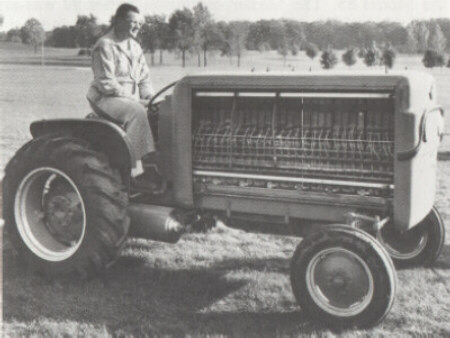RickRackstop wrote:Hey FarmallBob the first demonstration of a fuel cell was powering an Allis Chalmers tractor as I remember. They run fine on methane (natural gas) and who can tell the difference anyway.
Yes indeed!
However did you also notice that cell tractor concept was never repeated – not by Allis-Chalmer’s or anyone else. I can think of several possible reasons for this:
1 – Cost. Current installed price for a gas fuel cell runs in the neighborhood of $4 per watt (they require expen$ive catalyst metals in order to work). For a 20 HP tractor that’s nearly $60,000 just for the fuel cell assembly(!). Note also the tractor's original gas engine was good for 30 HP – ie. the fuel cell tractor was underpowered by 33% relative to it’s gasoline-powered twin.
2 – Weight. The A/C fuel cell tractor scaled out at 5,300 lb. The original gasoline powered tractor upon which it is based weighed 2,800 lb. Means the fuel cells added about 3,500 lb of extra weight
3 – Size. While actual dimensions are not given you can see A-C fuel cell stack was enormous relative to the gas engine it replaced:

4 – Fuel efficiency. The “fuel to drawbar” efficiency of the gas fuel cell is only a few percentage points better than the stock gasoline tractor engine – and then probably only under tightly controlled conditions.
Now if we scale this technology up to power a 4,400 HP locomotive here's how it might look: $14 million to buy the fuel cells. The cell assembly would weigh around 600,000 lb (300 tons!). The dimensions of the cell assembly we can only guess. However based on that experimental tractor it would occupy the long hood volume equivalent of at least 2 or 3 diesel locomotives.
----
Bottom line still is physics, thermodynamics and economics all conspire against the fuel cell as a viable locomotive prime mover.